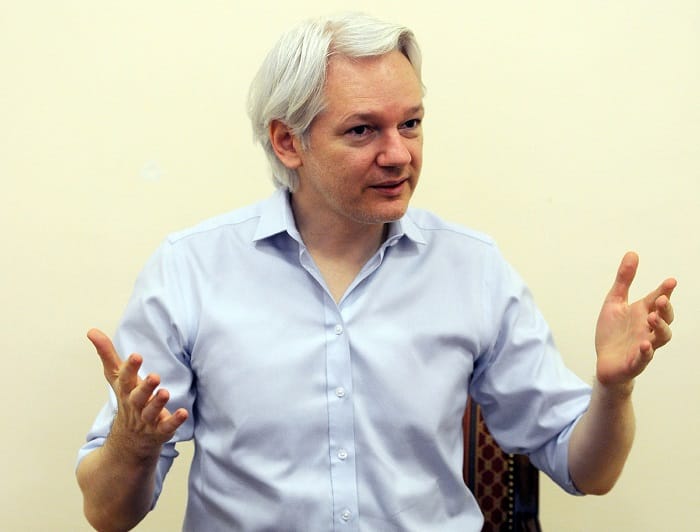Heroic Figures of the 21st Century: Steve Jobs and Julian Assange essay part 2
Heroic Figures of the 21st Century: Steve Jobs and Julian Assange essay part 1
Another prominent figure, who is perceived by many people as a hero, is Julian Assange. Even though he is quite a controversial figure in light of his legal prosecution, his contribution to the freedom of press can hardly be underestimated because he is the founder of WikiLeaks, the whistleblower website, which published wires of many government agencies, including the US government agencies uncovering the secret information.
The controversy of Julian Assange relates to the legal aspect of his work as editor-in-chief of WikiLeaks. His goal was to publish the information which he presented as the true wires and which probably were but which were obtained in the illegal or, at least, questionable way, because some of the wires were top secret. In such a way, Assange’s actions were questionable from the legal point of view. His critics (Domscheit-Berg & Klopp 174) argue that his actions were inappropriate and they may threaten to the national security of many states because they uncover the secret communication that involved statesmen and professionals working in government agencies. Moreover, critics (Brooke 185) also argue that one can never be certain that the information published by Assange via WikiLeaks is always true and is properly understood.
On the other hand, his WikiLeaks and his attempt to make the government policy and actions as transparent as possible became an important issue in the world since many people throughout the world supported his attempt. In fact, the average people perceive his actions as the attempt to make the truth available to the public. The main achievement that made Julian Assange the heroic figure of the 21st century is the fact that he was the person, who is now well-known worldwide, who has questioned the authority of the state over sovereignty of people through the manipulation with information and public opinion. To put it more precisely, Assange and his followers question whether the government should have the authority to keep some information in secret and hide it from the public eye or probably, as Assange believes, the public has the right to have access to all the information about the government and policies it conducts. Such a position is very strong, especially, when many governments attempt to manipulate with the public opinion and just play tricks on the public.
At the same time, the government of the US as well as many other government agencies of other countries of the world viewed Assange as a criminal, who violates legal norms concerning top secret information and information protection. Formally, the position of governments and government agencies is, to a significant extent, just, but from the ethical standpoint, his actions are justifiable because often government agencies, intelligence and other government bodies attempt to manipulate with the public opinion and use means and tools that are questionable from the ethical point of view. At this point, it is possible to refer to the case of the war on Iraq launched by the US on the intelligence’s assumption that Iraq owned the weapon of mass destruction and could use it against the US or its allies, while, in actuality, Iraq had no such weapon at all (Mohrman 195). The US policy makers could have been aware of this fact but they used the intelligence report as the pretext to launch the war on Iraq to reach certain economic and geopolitical goals of the US in the Gulf region. This case reveals the full extent to which activities of WikiLeaks and Julian Assange are important in the revelation of true actions of the government.
In fact, many supporters of Assange view him as a person, who attempted to re-establish the sovereignty of people and the people’s control over the government and government agencies through the freedom of press. The ultimate transparency of the government agencies, if applied worldwide, could have changed the world politics and international relations. However, at the moment, Assange faces the risk of prosecution, which his supporters (Brooke 152) view as an attempt to repress him for his activities against schemes and manipulations of governments of many countries, especially the US. Therefore, in spite of the controversy of Assange as a heroic figure, he is still a person that has had a considerable impact on the global community and public in many countries of the world.
At the same time, Assange is similar in a way to Jobs since he also contributed to the wider involvement of the public into the communication process through sharing important information online. However, if Assange provided the information worth sharing with the public, than Jobs did his best to provide the public with means and media to receive and share this information fast, effectively and without boundaries.
Thus, Steve Jobs and Julian Assange are two different but apparently heroic figures of the 20th century. On the one hand, there is a successful leader, manager and innovator Jobs, who raised information technologies and communication systems available to the public to the unparalleled level. On the other hand, there is Julian Assange, a journalist and publisher, who has attempted to make information available to all, including the information which the authorities rank as secret or even top secret. In such a way, the former provided the universal means of communication, whereas the latter offered the world the free access to the information which many governments try to hide doing their best. However, what makes them both truly heroic is that they have changed the world, to a significant extent. Jobs revolutionized the IT and communication market with Apple’s iPhone, whereas Assange has questioned the power and authority of the state to hide certain information from people questioning whether the state can suppress the sovereignty of people through hiding and manipulating with information.
Do you like this essay?
Our writers can write a paper like this for you!



